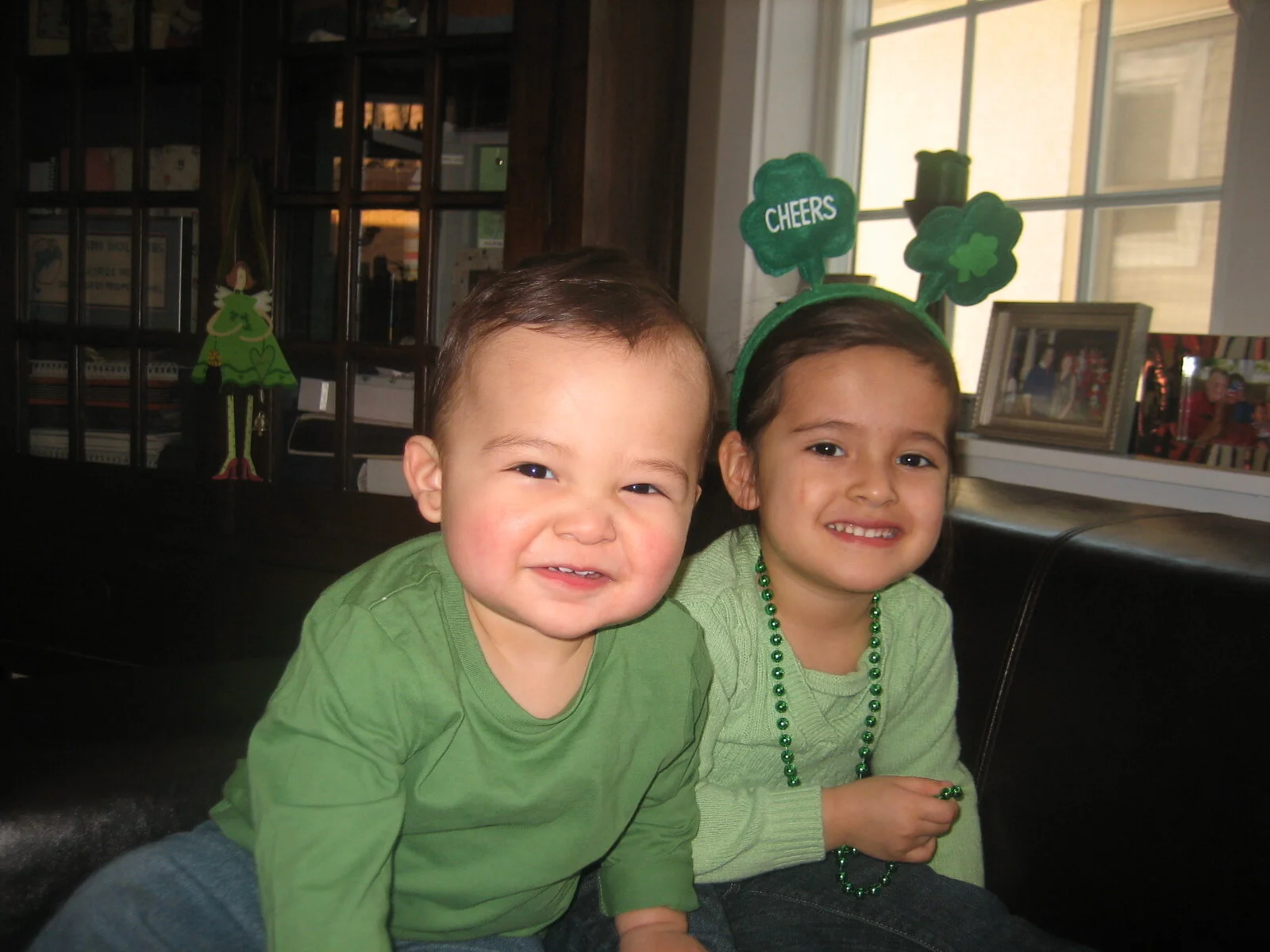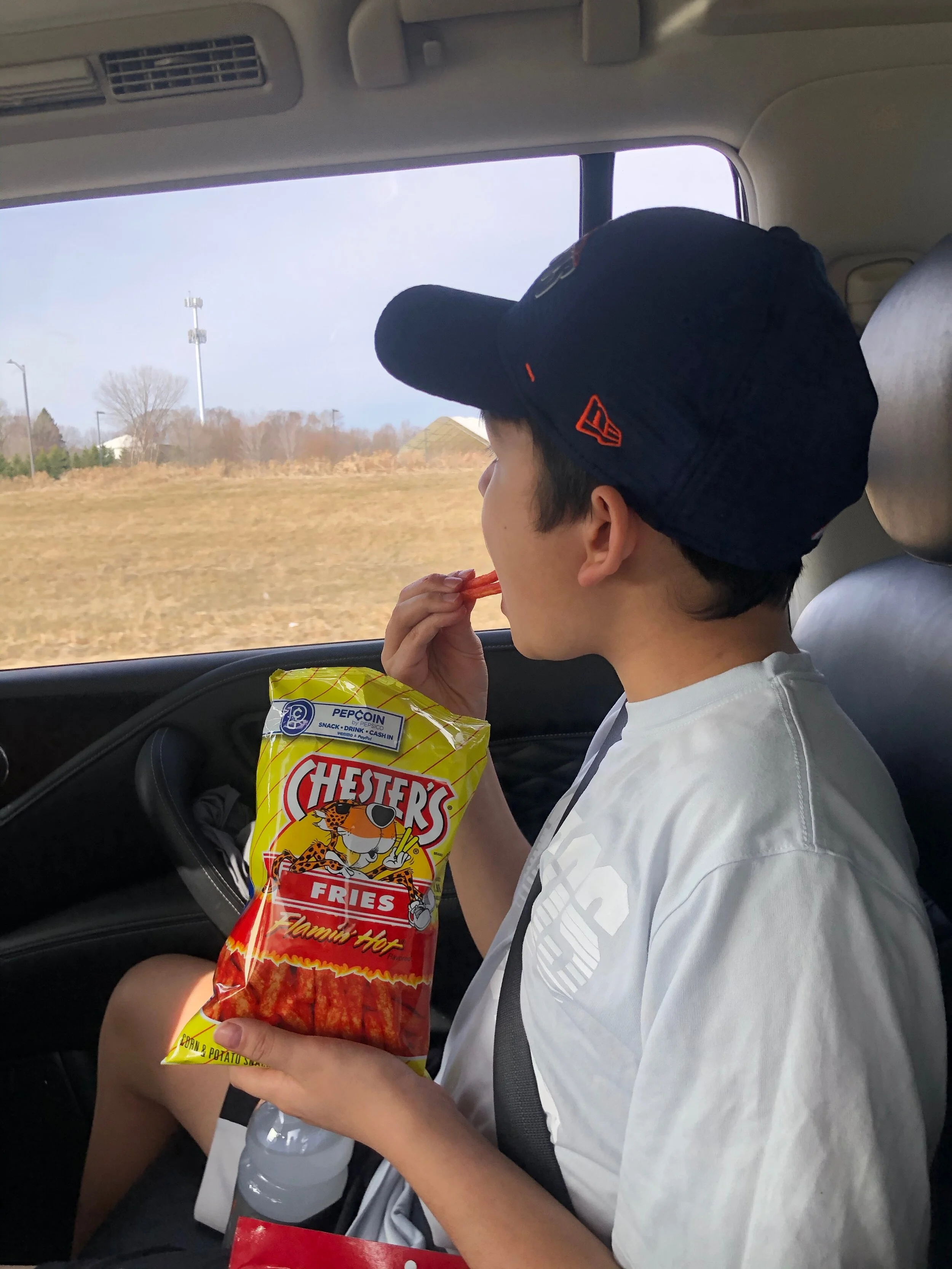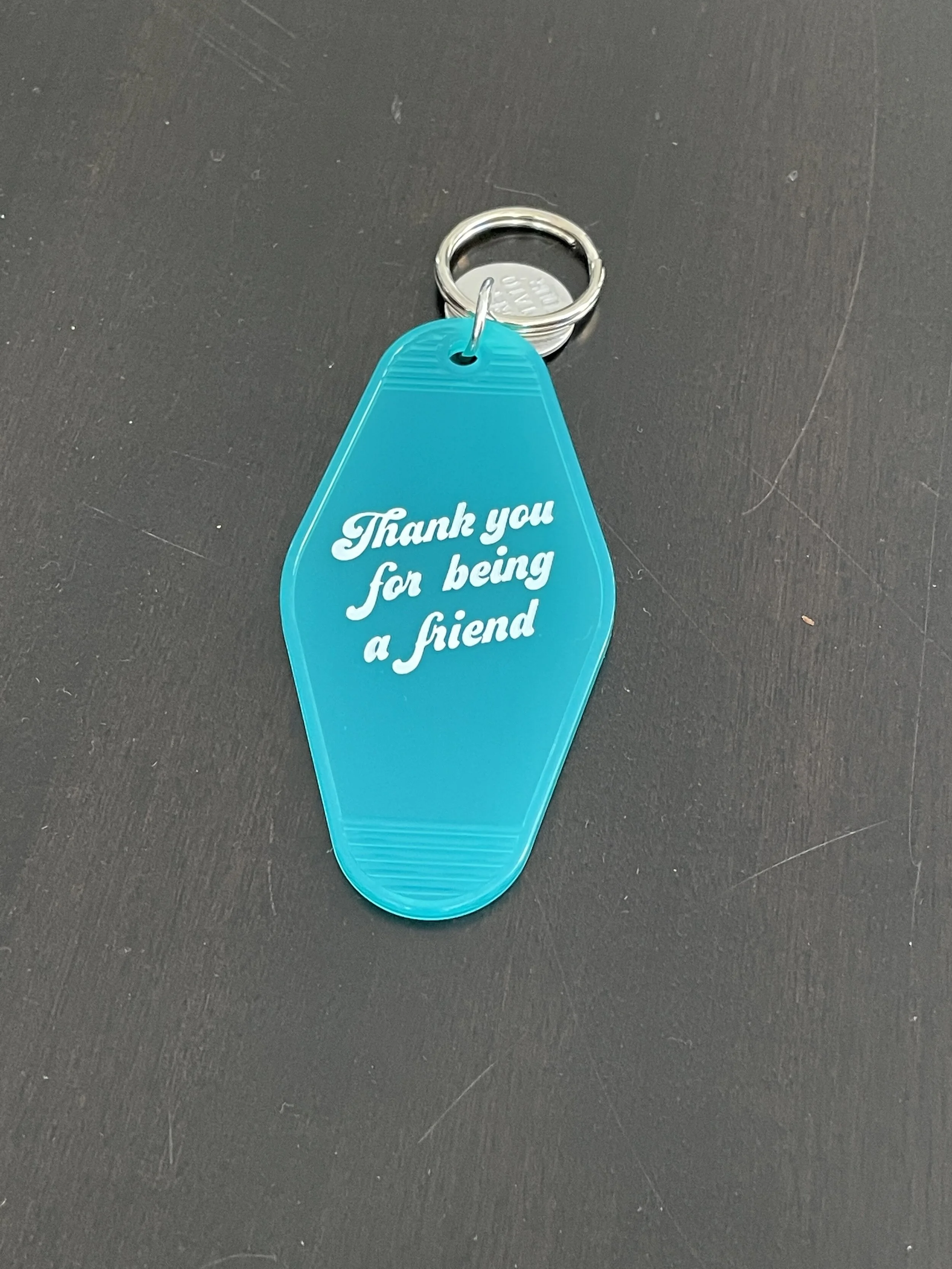Common Courtesy Day
When I was a pre-school teacher I observed another teacher (who was barely 21 years old) as she taught our students manners. She gave cues to the kids whenever manners were needed and she explained to me that she didn’t want the kids to perform manners. In other words, she didn’t want the kids growing up thinking they needed to act - she wanted them to know why they were using manners. It made sense to me. So before I had kids I promised myself that I wasn’t going to teach my kids common courtesies by saying, “Can you say, ‘Yes please.’ ?“ whenever the cashier at a store would ask if they wanted a sticker or a lollipop. Think about it, we are actually insulting their intelligence by asking that. Of course they can say those words! Sometimes I would physically cringe when I would hear, “What do we say when someone does something nice for us?”. I imagined a monkey on the shoulder of a street performer doing tricks.
For me, in a situation when an adult would ask my child if she wanted a sticker, I would repeat the question to my child. She would always nod yes to me and I would answer the adult using eye contact saying, “Yes please. “ Soon after, my kids wanted to speak for themselves and because they watched me many times, they knew exactly what to do. Here’s the key: I also had many, many, many conversations about WHY we are thankful and WHY we say please. I just preferred not to have these convos in front of the person who was doing/giving something nice for/to us. My thought process was to teach my kids privately, not making this gesture about me proving to this stranger that I was doing my job raising courteous citizens.
Before you think I’m a judger - the observation continues. Now that my kids are older, I fully understand why a parent would constantly give the same prompts over and over again during those formidable, pliable and easy to train childhood years. Parents want their children to have an automatic reaction that is pleasant. By using repetitive reminders, parents hope to build the use of common courtesy within our kids. Like muscle memory. This method definitely yields results!
If I’m discussing both ways that parents use to instill common courtesy in their children, I have to share that my kids continue to throw me off guard on a daily basis. I have a teenager and a tween and within our four walls, they both have somehow forgotten how to use common courtesy with their own family members!! My current situation: I’m asking my kids to listen to themselves speak. If they ask, “Mama, can you get me a glass of water?” I wait. Then I hear, “Please.” My lesson for them is this: They’ve said the phrases “please” and “thank you” so many times in their life so far. It should sound weird not hearing the courtesy within the conversation. To put it another way, if the sentence sounds off, it’s probably because it is off. Figure out why it sounds funny. Oh yeah - I’m missing a word! The funny thing is, that word just happens to be THE word needed in order for the action to take place. Using common courtesy actually serves ourselves as well as the other person because if we want to progress, we need to be aware of what needs to get done. Sometimes the only thing getting in the way is the magic word - “please”.
My teen and my tween forget that common courtesy is not just for complete strangers, their bffs or everyone in between. We especially need to use common courtesy in our home for our family members.
The official day to celebrate National Common Courtesy Day is March 21st every year. However, we should use common courtesy EVERY day of the year! According to nationaldaycalendar.com, “National Common Courtesy Day has been observed since at least 2003.” and it brings “…awareness to how important common courtesy is in our lives. According to the Apple Dictionary App, the meaning of courtesy is, “The showing of politeness in one's attitude and behavior toward others.” Nationaldaycalendar.com gives some examples of common courtesies. They are listed below and I have added some of my own:
Saying “Please”.
Saying “Thank You”.
Letting someone merge in front of us in traffic.
Holding the door for someone.
Helping someone put on their coat.
Making eye contact when speaking to someone.
Giving up our seat on the bus for someone who needs it more.
Introducing ourselves to someone new to the group.
If it is necessary to interrupt a conversation, apologize before interrupting.
Saying “Excuse me” when we burp, fart or sneeze around others.
If the action that we are doing affects someone else directly, we say “Excuse me.” For example, if we need to intrude on someone else’s personal space when we have to walk by them. Or if someone is in the middle of doing something and we need directions.
Putting the toilet seat down for the next person.
Not talking during the movie in a movie theater.
Picking up the dog’s poop if out on a walk. (I believe this is also a law)
Not bringing 30 items to a “10 item” check out kiosk.
Not eating someone else’s food from the fridge without permission.
Covering our mouths when we yawn, cough or sneeze.
You know, common sense practices that most people in our country already use. Basic social cues that allow us to feel civilized. There are a million of these courtesies because within every community, there are unique courtesies that exist as well.
Hopefully sooner rather than later, we figure out that the of use of common courtesies is one of the best currencies that we have in order to go further in life. Whether we learn what common courtesies are via repetitive practice or thru example and multiple conversations about them - in the end, the result is a learned behavior. While I don’t have scientific data to prove this, I just know thru my observation, that common courtesies benefit society as a whole. When another person senses our politeness, they are apt to put their best foot forward for us and therefore all parties involved progress. So courtesies are like thoughtful pinches for every generation; the dividends can go on for years! There is an old saying, “Mind your P’s and Q’s,” and it is great advice. Wikipedia claims that the phrase represents several versions of advice : 1. Be on your best behavior 2. Mind your manners. 3. Mind your language and 4. Watch what you’re doing. If you’re not already practicing some common courtesies, it’s never too late! National Common Courtesy Day is the perfect day to start.
Pinches,
Barb





